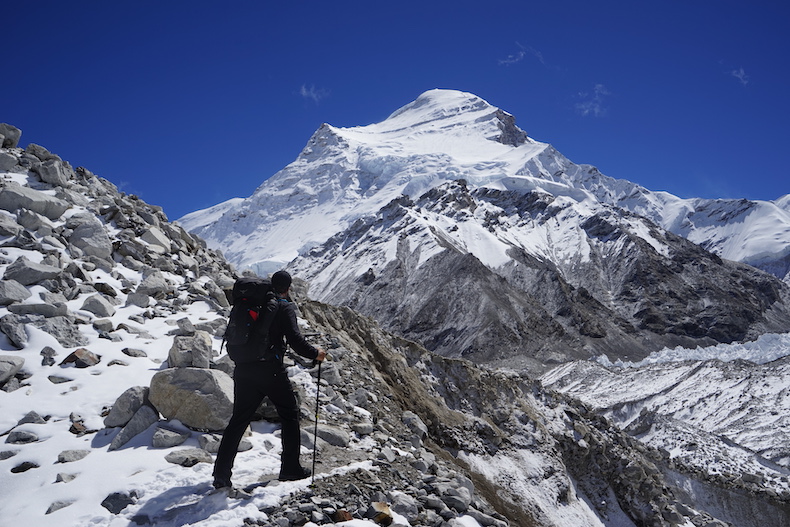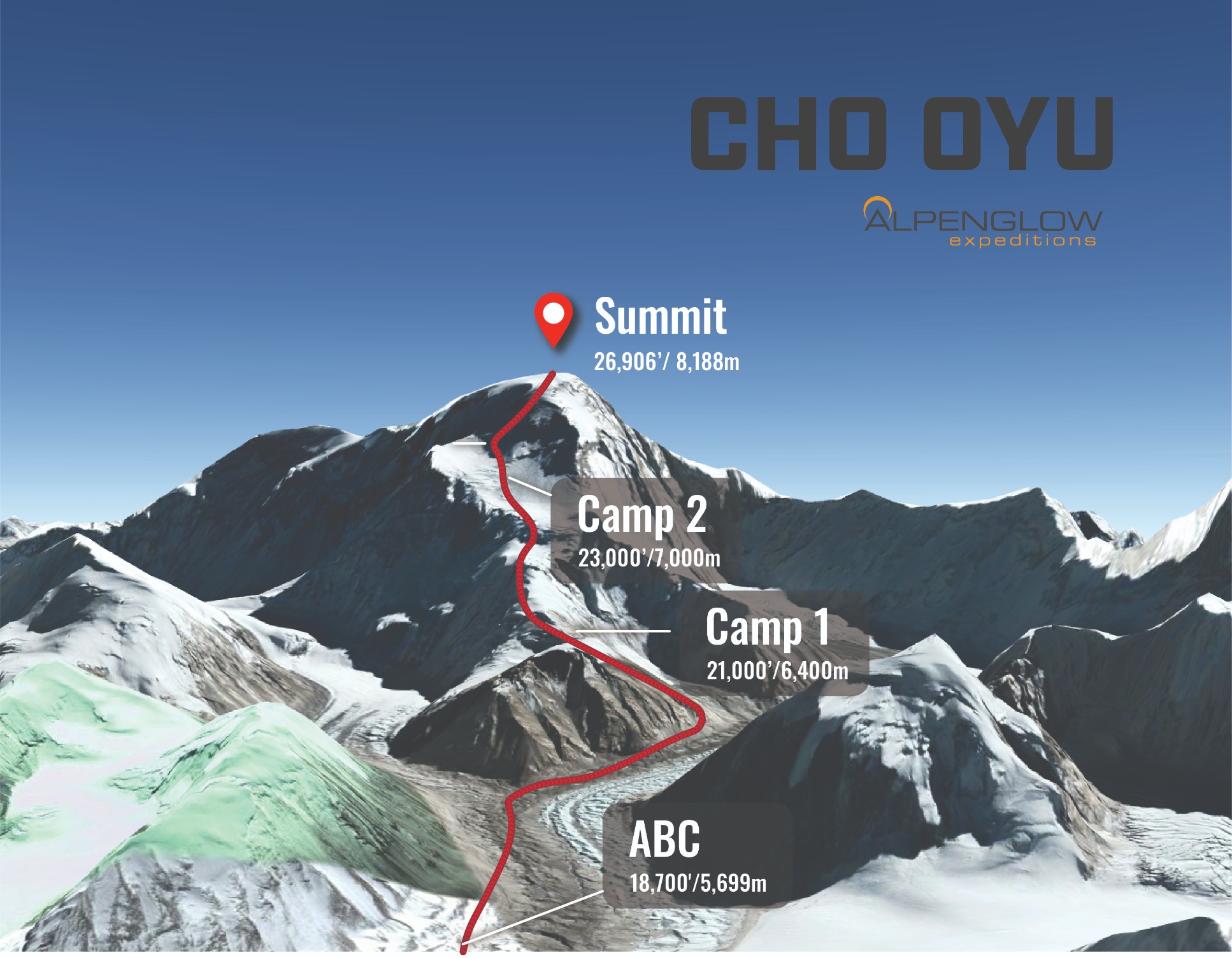The World’s “Easiest” 8,000m Peak Teaches us a Lesson

In 2007, Alpenglow owner and founder Adrian Ballinger wrote a blog following a harrowing expedition on Cho Oyu, the “easiest” 8000m peak. Read below for a taste of what life can be like above 8000m.

Where to begin? Sitting here on the beach in Vietnam (yep, it’s true – I am writing from the warmth and luxury of a beachside bar in the little surf town of Mui Ne. Not a bad way to recover after the licking we took on Cho Oyu!) the 6th tallest mountain in the world seems a long way away. Getting off the peak, through Kathmandu, and to here was quite the whirlwind, but I will see if I can sort out a few details.
It is never an easy decision to leave a peak without a summit. This year though, the weather on Cho Oyu completely closed down during the traditional window – the mountain made the decision for us with regulars to the mountain calling it the worst weather in a decade. The frustrating part is that throughout our acclimatization the weather was stellar, and that the original forecast we went for our summit bid with sounded almost perfect. But then the monsoon in the Bay of Bengal decided to play tricks with us! A large storm had been brewing in the bay for days, and was actually responsible for our great weather (preventing other fronts from moving over the Tibetan Plateau). But just as we committed to our summit bid and the upper reaches of the mountain, an arm of the storm broke out and, for the first time, came onto the plateau). When it did, our meteorologist (from Switzerland) started sending frantic emails warning us of the dramatic change in the models.
Unluckily for us, we were already at Camp II at 23,500 feet by the time the warnings came. And we did not need a forecast to tell us – we were busy struggling to save tents, and in one case, a desperate French woman being blown away inside her tent with all of her equipment (we saved her, her down suit, and her sleeping bag. She lost everything else)! It is hard to imagine the power of the wind up there. Despite the flapping of the tent fabric and the constant sound of blowing, when the real gusts came you would hear them coming across the mountain towards you, sounding like a freight train. When they hit, you would suddenly be holding tent poles with all your weight trying to prevent them from breaking, sucking on the nylon that was pushing down on your face, and watching snow somehow enter and cover you, despite the tent doors and windows being fully closed.
After one night like this, the guides held a meeting via radios from our individual tents (it was far too windy to get out of the tent to meet) along with Russell in ABC. After going back and forth discussing the risk of staying another night in conditions like this (and at a very high sleeping altitude) verses trying to descend in a full storm, the lure of ABC and warmth and comfort won out. It led to by far the most exhausting, exhilarating, and rewarding day of the expedition. Descending for any one climber, guide, or sherpa would have been nearly impossible. But as one big team, we were able to get everyone down to the safety of ABC, with no injuries and only 2 or 3 hours after dark! This is compared to other teams on the mountain with members with frostbite, and even one team with a guy breaking his leg on the ice cliff. It was truly epic outside – we descended 6,000 vertical feet in full summit gear (down suits, mitts, goggles, balaclavas, etc.) through knee to thigh deep snow, near zero visibility, and howling winds. Conditions like this make everything difficult and some things near impossible. Finding the buried fixed ropes was a nightmare, avalanches were a constant possibility, setting up rappels and communicating with each other was nearly impossible. In some places along the ridge, the fixed lines were being blown out over space by the winds, and mostly unusable!
Getting down to ABC was therefore in many ways our summit push. The team was exhausted, and by the time the storm ended we had lost 10 tents on the mountain, along with countless sleeping pads, bags, stoves, and cooksets. Due to a huge effort by the sherpa more was not lost, including 40 bottles of oxygen buried in a tent at almost 25,000 feet (the sherpa re-climbed the mountain after the center of the storm had passed to find, dig up, and carry down these bottles). After all of this (and a much needed night of recovery at ABC) the team together made the decision that another summit bid was not in the cards. The forecast models continued to look stormy until well after October 1, and the team felt they had pushed as hard as they wanted to in poor conditions.
And so what else was there to do than throw a big party. As it turned out, the teams that did make one more push were once again beaten back by winds, so our bash in ABC was many teams’ farewell party. And Russell is almost as good a party host as he is expedition leader – imagine 40 bottles of champagne chilled on glacier ice, along with plenty of beer, wine, food, dance music, and a few contributions from the Norwegian girls (snus and licorice vodka topped the list). It was quite the way to celebrate our attempt and a safe expedition free of injuries. And it was a good way to honor what many people call the world’s easiest 8000 meter peak. Our team (and everyone on the mountain this season) was clearly reminded that even the easiest can be incredibly serious and technical, and that even all our modern technology can’t guarantee the weather or conditions. At the end of the day, survival in the mountains still comes down to making smart decisions and counting on your teammates. Thanks to our team, and especially to my mini-team from Maryland of Gay and David, for making Cho Oyu such a positive experience, and for all coming home in one piece.
I look forward to round two with the mountain – Join Alpenglow and Himalayan Experience for Cho Oyu, 2008!
From the beach (and not suffering too much) – Adrian Ballinger